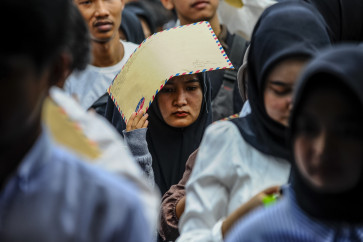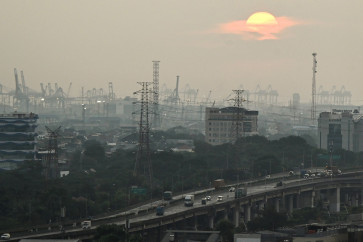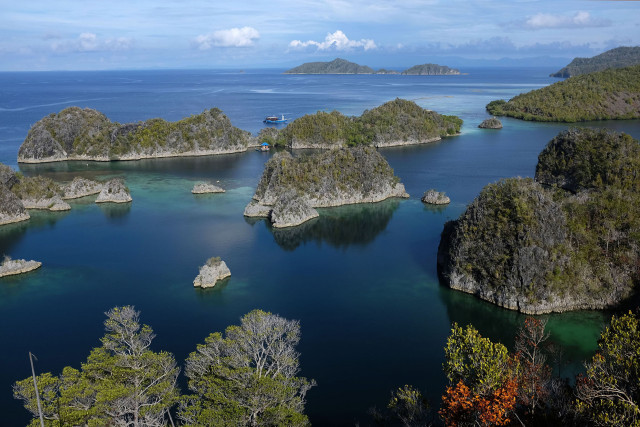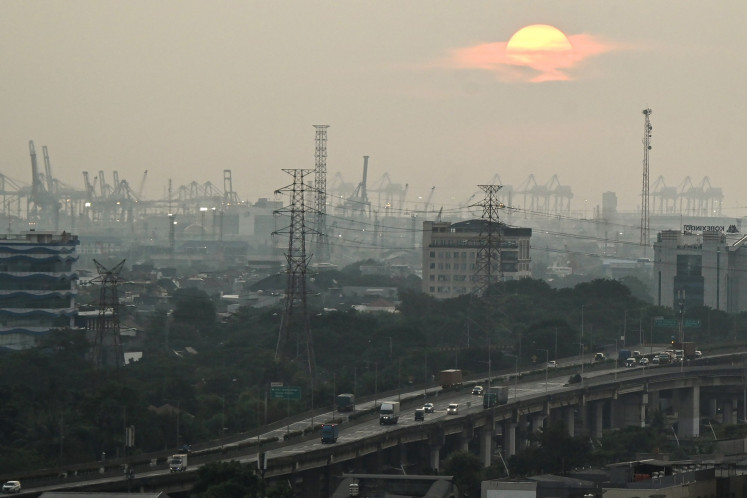Nusantara: Carving out a legacy or heading toward disaster?
The IKN relocation and development project presents an opportunity for the government to start anew using technological innovations and sustainability principles, not repeat the same old outdated methods that are sinking Jakarta fast.
Change text size
Gift Premium Articles
to Anyone
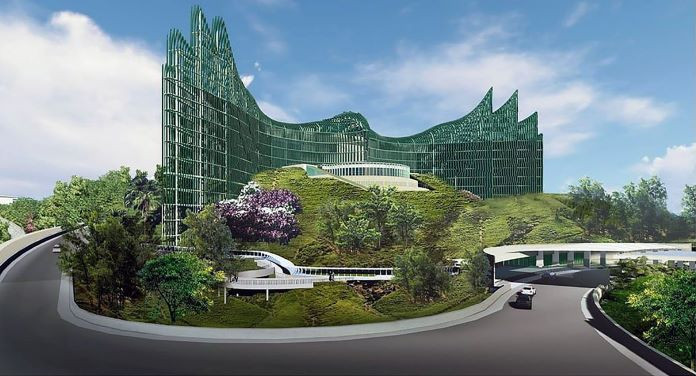
T
he plan to build the Nusantara Capital City (IKN) in East Kalimantan was made official after the House of Representatives passed the bill on the nation’s new capital city into law on Jan. 18. President Joko Widodo announced the capital city relocation plan as part of his administration’s agenda following his reelection in 2019.
Jakarta arguably has a myriad of socioeconomic and environmental issues. In comparison, the new capital city, named Nusantara, has been deemed less vulnerable to natural disasters and is strategically located in the country’s geographical center. Additionally, relocating the capital city to East Kalimantan could redirect the government’s attention to other regions outside Java, attract investment to these areas and create a symbol of national identity and unity.
Jakarta’s advanced level of development and higher productivity has attracted many people. Statistics show that 256 people move to Jakarta per day, while an estimated 1.3 million people commute to Jakarta for work every day.
Unbalanced population growth and limited infrastructure are the suspected roots of Jakarta’s social and environmental issues, creating a need to develop a new capital.
The most prominent issue may be the fact that Jakarta is sinking rapidly. Considered the fastest sinking city in the world with a subsidence rate of 5 to 10 centimeters annually, parts of North Jakarta have sunken 2.5 meters over the last decade, or 25 centimeters per year.
Jakarta is located in a lowland area with an average height of around 7 meters above sea level, so it is already vulnerable to flooding during the rainy season. Depending on how greenhouse gas emissions are curbed, scientists predict that sea levels around the world are likely to rise between 26 and 82 centimeters by the century’s end. By then, Jakarta is expected to become an underwater megacity.
Another major problem Jakarta faces is living conditions. The Agrarian Affairs and Spatial Planning Ministry notes that more than half of Jakarta’s settlements consists of slums, whose residents are vulnerable to diseases due to inadequate sanitation and high crime rates.
Worse, Jakarta’s air is highly polluted. Based on air quality data from AirNow, the yearly average PM2.5 concentration in Central Jakarta in 2019 was 40.1 micrograms per cubic meter, far above the World Health Organization’s threshold of 10 mcg/cbm.
The decision to relocate the nation’s capital may seem justified, considering the potential benefits of having a safe and stable capital city. However, neither the government nor the formulation of the IKN bill addressed the environmental consequences of building a new capital. The bill was passed after less than one month of deliberation that clearly lacked public participation.
One example of the potential environmental impacts of the new capital city project that could have been discussed is carbon emissions. Unlike the cases of Malaysia and Egypt, which built their new capitals close to the old one, Indonesia will move its capital to an entirely different island.
Access to Nusantara is limited to travel by ship or by air. While air travel is the highest carbon emitter among modes of transportation to date, it is still the most practical choice for interisland journeys. Thus, it is very likely that the IKN development project will increase the number of flights and thus emissions, at least during the transition period that is projected to last until 2045.
Another issue is the condition of Kalimantan’s forests. Building the new capital may disturb the local biodiversity depending on the size and type of land used, e.g. forest area, brownfields or old oil palm plantations. It may also emit carbon directly during land clearing or indirectly through the reduced size of Kalimantan’s forests, one of the world’s major carbon sinks.
The government study estimates that the IKN project could span between 30,000 and 40,000 hectares of land. This could endanger forest reserves, the ecosystems of peatland or mangrove forests and even the heart of Kalimantan’s forests, depending on how the IKN expands.
Since the law has already been passed, its implementation must not only involve sufficient public participation, but also proper cost-benefit analysis and environmental and social impact assessments.
Aside from the environmental considerations, the public has also criticized the government’s questionable evaluation of the urgency for the IKN project. First, the IKN bill was endorsed much more quickly than other draft laws, especially the sexual violence bill and the data privacy and monetization bill that have been at a stalemate since 2014.
Second, the funding allocated for the IKN project has swollen from originally 19.2 percent of the 2021 budget (Rp 89 trillion) to 53.3 percent (Rp 259 trillion). In fact, the government signaled the possibility of redirecting a portion of the COVID-19 response funds from the national economic recovery program (PEN) to the IKN project, claiming that it would create jobs and thus contribute to recovery. Reallocating these funds could hinder other investments, such as for disaster adaptation and risk management in many regions.
Meanwhile, relocating the capital does not mean Jakarta’s problems will be over. The project does not necessarily reduce Jakarta’s burden because only a small share of the population will leave.
Most of the existing government buildings in Jakarta will probably be transformed for business purposes, which will instead lure more people to come to Jakarta. If no other transformations occur in the city, the same old problems will persist, if not worsen.
Moreover, the time frame for the IKN project, planned to start in 2024, is a medium-term solution at best. Jakarta needs immediate transformation to survive land subsidence, climate change and pollution. Delays will only lead to greater losses.
A holistic and careful plan for the IKN project is needed so it does not end up facing the same problems as Jakarta, or even necessitate another relocation of the nation’s capital. The IKN development project could revitalize degraded land instead of clearing new land. Infrastructure development and government procurements could innovatively use recycled or locally sourced materials.
Nusantara’s design could prioritize energy efficiency by utilizing renewable energy sources and efficient technologies like LED lights. Nusantara could become a city for people and not cars. Waste management could also be greened to minimize pollution. Rainwater reservoirs and water treatment plants could supply clean water while avoiding subsidence.
Finally, considering East Kalimantan’s overall lack of connection to national economic activities and the region’s reliance on the fossil fuel industry, the new capital city might first aim to build an ecotourism center before developing further.
In short, moving out is not the best solution on its own without proper planning to solve Jakarta’s problems and address the unintended consequences of the IKN project. With extensive public consultation and careful and transparent execution driven by sustainability, the government has a golden opportunity to build a legacy: A futuristic, sustainable city that is good for both the people and the environment.
***
Novia Xu is a researcher at the Centre for Strategic and International Studies (CSIS) Jakarta; Jeremy Samuel Ngadiman is an intern at CSIC Jakarta.

